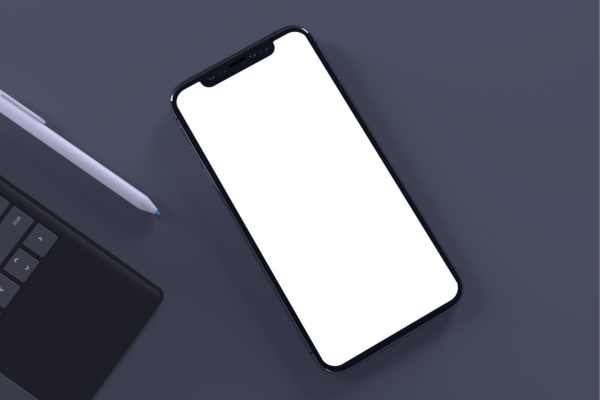Is Your iPhone at Risk? 10 Models Losing iOS 17 Support!

In the dynamic realm of technology, staying updated is not just a luxury, but a necessity. This is especially true for iPhone users, as Apple’s iOS updates often bring about significant changes. One such change that has recently caught the attention of many is the loss of iOS 17 support for certain iPhone models.
iOS updates are more than just about having the latest features or the most visually appealing interface. They are about ensuring that your device is secure, efficient, and capable of delivering the best user experience possible. However, with the loss of iOS 17 support, some iPhone models will no longer be able to enjoy these benefits.
This development raises a critical question: “Is your iPhone at risk?” If you’re using one of the models that are losing support, the answer might be a concerning “yes”. But what does this mean for you, and what can you do about it? This article aims to shed light on these questions and provide iPhone users with the information they need to navigate this change.
Understanding iOS 17
iOS 17, the latest iteration of Apple’s renowned operating system, is a game-changer in many ways. It brings a plethora of new features designed to enhance user experience and improve device performance. From a redesigned control center to advanced privacy features, iOS 17 is all about making your iPhone more personal and more powerful.
However, the benefits of iOS 17 are not just limited to new features. The update also includes significant performance improvements and security enhancements. It’s designed to make iPhones faster and more responsive. Apps launch quicker, and even the keyboard and camera open up to speed. Plus, iOS 17 introduces new privacy features that give users more control over their data.
But here’s the catch – not all iPhone models will be able to enjoy these benefits. With the release of iOS 17, Apple has decided to discontinue support for certain older iPhone models. This means that these models will not receive the iOS 17 update and will not benefit from its features and improvements.
The models currently losing support are the iPhone 8, iPhone 8 Plus, and iPhone X. These models reached their 5-year lifespan for new feature updates in 2023 and will only receive security updates for a few more years. On the other hand, the iPhone XR, iPhone XS, and iPhone XS Max are estimated to lose support soon, around 2024-2025.
This development is a part of Apple’s policy to phase out older hardware as it becomes increasingly difficult to provide software support for them. While this may seem like a disadvantage for users of these models, it’s important to remember that they can still use their devices without the iOS 17 update. However, they may miss out on the new features and improvements that come with it.
The Importance of iOS Support
iOS support is crucial for the optimal functioning of your iPhone. When Apple provides support for an iOS version, it means your device can benefit from all the features, security updates, and performance enhancements that come with that version. However, when a device loses iOS support, it no longer receives these benefits.
For users of iPhone models that are losing iOS 17 support, this could mean a significant change in their user experience. Without the latest features, these iPhones may not be able to run certain apps or perform certain functions. Moreover, without the latest security updates, these devices could potentially be more vulnerable to security threats.
In addition, the loss of iOS 17 support could also impact the performance of these iPhones. Without the performance enhancements that come with iOS 17, these devices might become slower or less efficient over time.
However, it’s important to note that while these iPhones are losing iOS 17 support, they will still receive security updates for a few more years. This means that while they won’t have the latest features, they will still have some level of protection against security threats.
In the next section, we will delve into the specific iPhone models that are currently losing support and those that are expected to lose support soon.
10 iPhone Models Currently Losing iOS 17 Support
As of now, the iPhone models that are losing support for iOS 17 are the iPhone 8, iPhone 8 Plus, and iPhone X. These models have reached their 5-year lifespan for new feature updates in 2023. While they will continue to receive security updates for a few more years, they will not be able to benefit from the new features and performance enhancements that come with iOS 17.
The iPhone 8, iPhone 8 Plus, and iPhone X were all popular models in their time, offering advanced features and capabilities. However, as technology advances, older hardware often struggles to keep up with the demands of new software. This is why these models are losing support for iOS 17.
On the other hand, the iPhone XR, iPhone XS, and iPhone XS Max are expected to lose support soon, around 2024-2025. Despite their initial inclusion in the iOS 17 update, these models are nearing the end of their feature updates cycle.
It’s important for users of these models to be aware of this development and to consider their options. In the next section, we will discuss what this means for users and provide some advice on how to navigate this change.
| iPhone Models | Current iOS Version | Last Update |
| iPhone 8 | iOS 16 | 2023 |
| iPhone 8 Plus | iOS 16 | 2023 |
| iPhone X | iOS 16 | 2023 |
| iPhone XR | iOS 17 | 2023 |
| iPhone XS | iOS 16 | 2023 |
| iPhone XS Max | iOS 16 | 2023 |
What This Means for Users
The discontinuation of iOS 17 support for certain iPhone models is a significant development that could impact many users. If you’re using an iPhone 8, iPhone 8 Plus, iPhone X, or planning to use an iPhone XR, iPhone XS, or iPhone XS Max in the near future, this change could affect your user experience.
Without the latest iOS updates, your iPhone may not be able to run certain apps or perform certain functions that require the new features introduced in iOS 17. Moreover, without the latest security updates, your device could potentially be more vulnerable to security threats.
However, it’s important to note that while these models are losing iOS 17 support, they will still receive security updates for a few more years. This means that while you won’t have access to the latest features, your device will still have some level of protection against security threats.
For users of these models, it’s crucial to stay informed about these changes and consider their options. Upgrading to a newer model that supports iOS 17 is one option. However, this might not be feasible for everyone due to the cost involved.
In the next section, we will explore some alternatives and solutions for users of iPhone models that are losing iOS 17 support.
Alternatives and Solutions
For users of iPhone models that are losing iOS 17 support, there are a few alternatives and solutions to consider. One option is to upgrade to a newer iPhone model that supports iOS 17. This would give you access to all the latest features and security updates.
However, if upgrading is not an option, you can still use your current iPhone model. While you won’t have access to the new features introduced in iOS 17, you will still receive security updates for a few more years, ensuring some level of protection for your device.
Conclusion
The loss of iOS 17 support for certain iPhone models is a significant development. Users of these models need to stay informed and consider their options. Whether it’s upgrading to a newer model or continuing with the current one, the choice depends on individual needs and circumstances.
Frequently Asked Questions (FAQs)
What is iOS 17?
iOS 17 is the latest version of Apple’s operating system for iPhones. It introduces a host of new features, performance improvements, and security enhancements. However, not all iPhone models will be able to upgrade to iOS 17.
Which iPhone models are losing iOS 17 support?
The iPhone models currently losing support for iOS 17 are the iPhone 8, iPhone 8 Plus, and iPhone X. The iPhone XR, iPhone XS, and iPhone XS Max are expected to lose support soon, around 2024-2025.
What does losing iOS 17 support mean for users?
Users of iPhone models that are losing iOS 17 support may not be able to run certain apps or perform certain functions that require the new features introduced in iOS 17. Moreover, without the latest security updates, these devices could potentially be more vulnerable to security threats.
What are the alternatives for users of iPhone models losing iOS 17 support?
Users of iPhone models that are losing iOS 17 support can consider upgrading to a newer iPhone model that supports iOS 17. If upgrading is not an option, they can still use their current iPhone model, which will continue to receive security updates for a few more years.
What is the importance of iOS support?
iOS support is crucial for the optimal functioning of your iPhone. It ensures that your device can benefit from all the features, security updates, and performance enhancements that come with each iOS version. When a device loses iOS support, it no longer receives these benefits.
What is the impact of losing iOS 17 support on iPhone performance?
The loss of iOS 17 support could impact the performance of affected iPhones. Without the performance enhancements that come with iOS 17, these devices might become slower or less efficient over time.
Will iPhones that lose iOS 17 support still receive security updates?
Yes, iPhones that are losing iOS 17 support will still receive security updates for a few more years. This means that while they won’t have access to the latest features, they will still have some level of protection against security threats.



